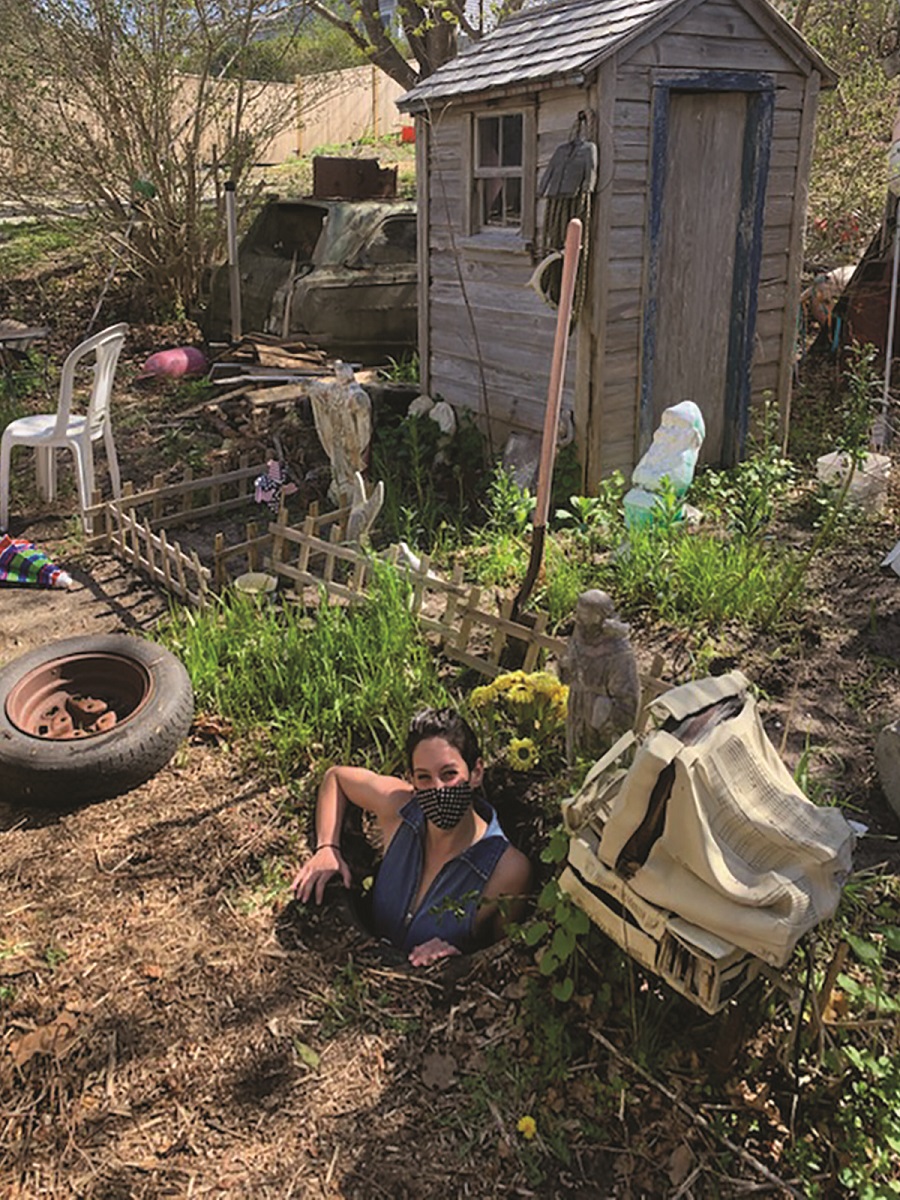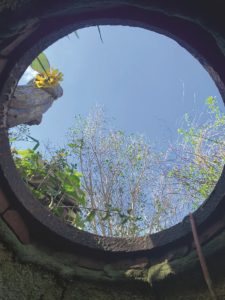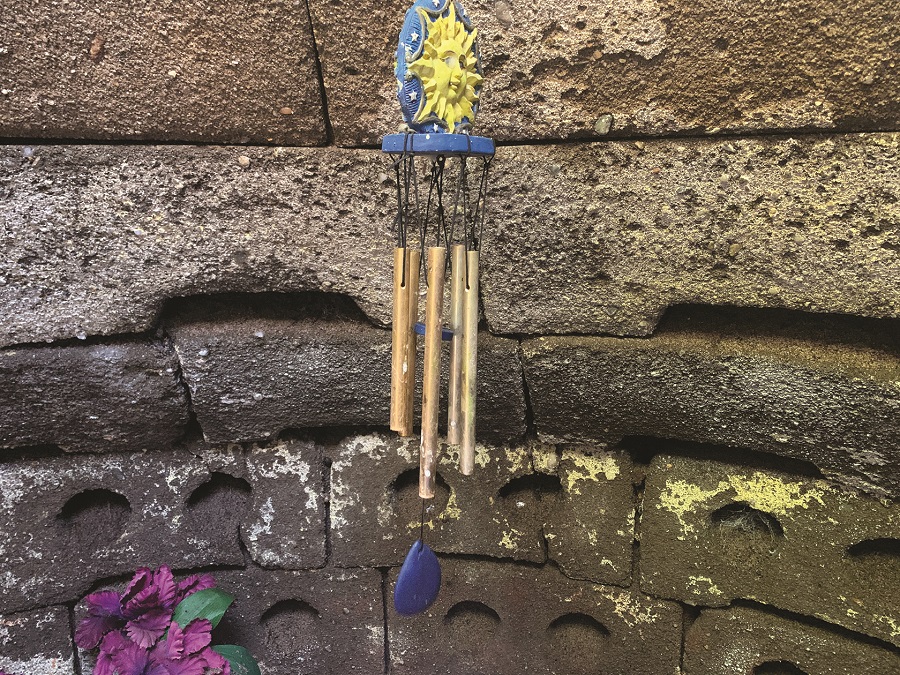PROVINCETOWN — In 1997, Jay Critchley uncovered a backyard manhole, peered into a cesspool, and “discovered a new world.”
He had always known about his property’s cesspit, a pre-Title 5 relic that had sat unused for a decade and a half. But Critchley had never before felt compelled to study the pit, or to consider his defunct, inherited cesspool as anything more than just that.

On that day, Critchley, the activist-artist-provocateur, saw a split-level stage, an apartment-slash-commentary-on-artists’-living-conditions. Toned down a level, he saw something simpler: “A gorgeous space.”
Critchley’s cesspool is shaped like a cinder-block beehive. It swells at its widest point to six feet in diameter and extends five feet underground. In its past life, the beehive could fit a single family’s waste. Now, Critchley claims, it is quasi-livable. Long ago, to make the point, he carpeted the dirt floor, whitewashed the cinder blocks, added a mattress, electrical cord, TV, altar. He called it a Septic Summer Rental.
This was Critchley’s indictment of Provincetown’s looming affordable housing crisis, not an actual solution to the problem. Provincetown Health Director Morgan Clark stresses that “a livable space needs at least two means of egress, and natural light.” And, as she points out, “a cesspool has neither of those.”
“I know it’s tempting to make use of something you’ve used in the past,” says George Heufelder, who works with the Mass. Alternative Septic System Test Center in Sandwich. “But I could see no positive thing about using a used cesspool for anything else.” Not even for a root cellar? No, he says. “If there’s remaining organic matter in there, it can create sewer gases like methane, which do things like kill you.”
These are not facts Critchley cares to take up. His was a “good-sized unit, with a rooftop sundeck and a shared shower,” he recalls. He’d rent it now for at least a couple thousand a week, he says. Except that, after stints as a theater, an opera house, and a poetry stage, his cesspool has moved on.

Critchley’s cesspool can fit this reporter, sitting, with room for a friend. Standing is a different story.
What does it mean to have one’s body in a cesspool and one’s head extending from a manhole, level with Jay Critchley’s shins and a statue of Saint Francis? That, says Critchley, is called “a moment of transformation.”
The dirt floor is uncarpeted again. But some décor remains: five bunches of fake flowers; a windchime dangles near ground level; some slugs have made themselves at home. The first thought when one lowers oneself into a cesspool is neither “gorgeous” nor “transformative.” The first thought is, likely, “I am in a cesspool.”
Yet this cesspool does not smell like a cesspool. Its smell is dark, basement-y, two beats from unpleasant. Critchley calls it “flavor.”
A cesspool operates simply. Pipes carry waste from homes to their backyard pits. In Provincetown, those pits’ sides are mostly walled, with cinderblock or brick or pounded concrete. “This town is a sand dune,” says Critchley. “With no walls, a cesspool would cave in.” But the pit’s floor is open dirt. Liquids leach through it, into the water table; solids compost and decay.
Critchley has studied up on local cesspools, he says, deadpanning — his gift for deadpan is sublime — that he has seen enough beehives, prisms, and ordinary pits to propose a historic septic district to the town.

Before 1995’s Title 5 legislation, cesspools reigned supreme in Provincetown. Now, the law deems them “nonconforming systems.” They only come up, says Health Director Clark, “because they’re bad and need to turn into something better.” Clark estimates that about 150 functioning ones remain in town.
But Critchley has a point. Look past the slugs, past the worry about the possible contaminants entering your airways, and a quiet elegance reveals itself. When was the last time you studied a cinder-block beehive? Each of those blocks, says Critchley, was built specifically for its role in the structure. To the extent that cinder blocks can nestle, these ones do. Through the manhole opening above — a circle of blue sky and greenery — is Critchley’s face peeking in.
“It’s a small space for big ideas,” he says. “Do you feel transformed?”



